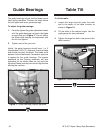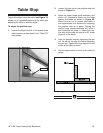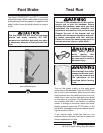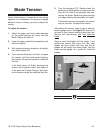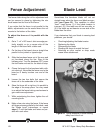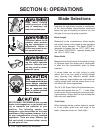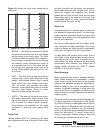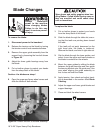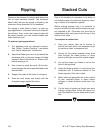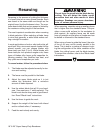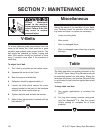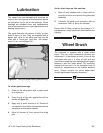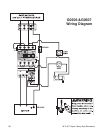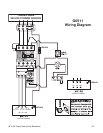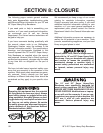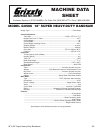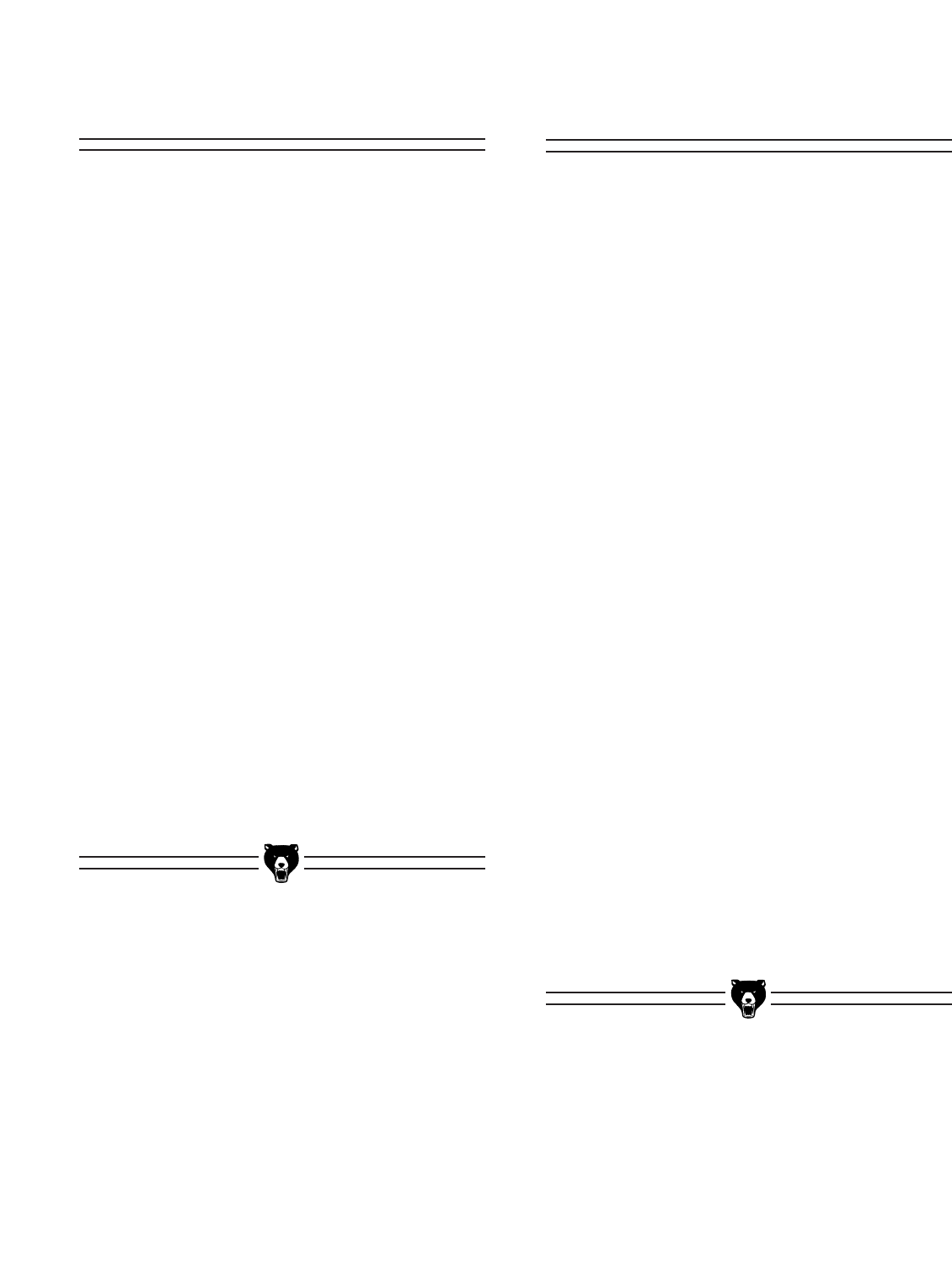
-26- 18" & 20" Super Heavy-Duty Bandsaws
Ripping is the process of cutting a wide board into
two or more narrower boards. The maximum
board width that can be ripped is limited by the
maximum throat dimension of the bandsaw.
For ripping, a wider blade is better. In most rip-
ping applications, a standard raker tooth style will
be sufficient. Also, since most ripped lumber will
be jointed smooth, you can choose blades with
fewer teeth-per-inch.
To perform ripping operations:
1. The bandsaw must be adjusted correctly.
See “Blade Tension/Tracking” instructions
and “Fence Adjustment” instructions.
2. Adjust the blade guard so it is just above the
workpiece with a minimum amount of blade
exposed. Read instructions on “Blade Lead”
before making a cut.
3. Use a fence to guide the work. Set the dis-
tance between the fence and the blade to the
desired width.
4. Support the ends of the board if necessary.
5. Feed the work slowly and evenly with the
straightest edge against the fence.
Ripping Stacked Cuts
One of the benefits of a bandsaw is its ability to
cut multiple copies of a particular shape by stack-
ing a number of workpieces together.
Before making stacked cuts, it is essential to
ensure that both the table and the blade are prop-
erly adjusted to 90°. Otherwise, any error will be
compounded with each piece from the top to the
bottom of the stack.
To complete a stacked cut:
1. Align your pieces from top to bottom to
ensure that each piece has adequate scrap
to provide a clean, unhampered cut.
2. Secure all the pieces together using brad
nails through the waste portion or using
beads of hot glue across the outside edges.
3. Lay out the shape you intend to cut on the
face of the top piece.
4. Adjust the blade guard so it is just above the
workpiece with a minimum amount of the
blade exposed. One inch is ideal.
5. Make relief cuts perpendicular to the outline
of your intended shape in areas where
changes in blade direction could strain the
blade.
6. Cut the stack of pieces as though you were
cutting a single piece. Follow the layout line
with the blade kerf on the waste side of your
line.



